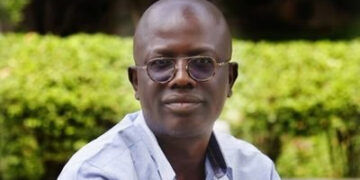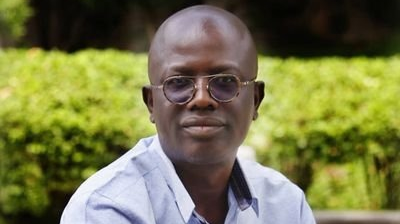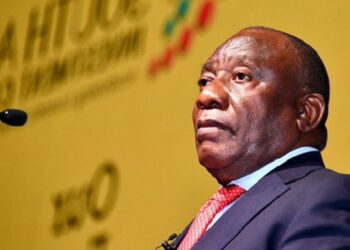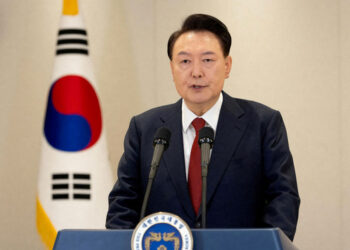By Olusegun Adeniyi
The irony of life is that sometimes we find wisdom in the most unlikely places. And often from the most unlikely persons. That precisely was the point of a tweet last week and two of the responses that followed. First, from @nzesylva: “Cab guy just dropped an epic proverb: ‘This world na standing fan. If e blow you small. E go blow another person small.” As profound as that may have sounded to the hearer, @ChrisVogue looked at it in a different context: “Nigerian fan can’t relate. The rotation button don spoil, blowing the same thieves since independence.” Apparently to validate that point and expand on the thesis, @izzo_1X added: “and instead of fixing the rotation button, everybody is struggling to stand in front of the fan.”
I have reflected on those profound tweets in the past few days because they sum up the tragedy of Nigeria. While the cab driver spoke to the ideal, it is difficult to fault the argument that the preoccupation of most Nigerians is not how to fix the problem but rather how to position themselves to be at the helm of “sharing the national cake” at practically all levels of public engagement. Which then explains why, from the economy to governance and national security, Nigeria is today a country besieged. Rather than look for solutions, everybody is pointing fingers or positioning themselves and their families for a spot in front of the standing fan.
To understand our national dilemma, here are facts that should compel sobriety. As at April 1980 during the Second Republic (41 years ago), a barrel of oil was selling for $37.24 and we were pumping 2.2 million barrels into the international market daily. The population of the country at that time was 73.44 million. Even with tell-tale signs that things were going awry, a prominent politician boasted that Nigerians had not started to ‘eat from dustbin’ in what has turned out to be a self-fulfilling prophecy. Today, the price of oil is about $69 and we are pumping roughly 1.47 million barrels a day. Based on Worldometer elaboration of the latest United Nations data, Nigeria’s population as at yesterday was 211,400,708. The implication is that while our population has almost tripled, our earnings have not changed since we still rely on oil to run our economy. And we are not even managing that oil asset well.
In the same week last month that the Nigeria National Petroleum Corporation (NNPC) wrote the Accountant General of the Federation about the financial implications of the subsidy regime we refuse to let go, Shell was raising dividends for its shareholders for a second time in six months. First-quarter earnings exceeded forecasts by a whooping sum of $100 million—from $3.1 billion to $3.2 billion. The contrast between Shell and NNPC could not have been starker. But the real challenge is in the implication of the NNPC letter. According to year 2020 statistics on the Federation Account Allocation Committee (FAAC) receipts as a percentage share of their total revenue, more than 30 of the 36 states will simply crumble if there is no oil money to share in Abuja at the end of every month. In fact, in nine states, 90 percent and above of their total earnings are FAAC allocations.
While agriculture has slowed down significantly in the country, especially in the past three years—essentially due to criminal activities by bandits, kidnappers, and insurgents—”nearly a quarter of the work force (in the country) was unemployed in 2018; and another 20 percent under-employed”, according to the World Bank. “With 3.9 million net entrants into the labor force (now 90.5 million people) during 2018.” The situation has since worsened. According to the National Bureau of Statistics (NBS) Labour Force Survey for 2020, the unemployment rate in the country was four percentage points higher than the figures recorded in the third quarter of 2018.
Whichever direction you look, the prognosis is not good for Nigeria. As at last December, according to the United Nations High Commissioner for Refugees (UNCHR), there were 2.1 million displaced Nigerians and 304,562 refugees. Not only is Nigeria reputed to have the largest population of out-of-school children in the world, but the federal ministry of education also stated in March that within the last one year, more than three million children have been added to these shameful statistics.
From the foregoing, it is evident that the button on the standing fan has long stopped working. This results in ventilation reaching only a very few. The challenge, however, is that the blades are also getting weak with the possibility that the fan could pack up altogether. When some of us therefore talk about restructuring Nigeria, it is not about partitioning the country for ethnic entrepreneurs. Rather it is to make the system work for all citizens. That of course would require effort, time, patience, sacrifice and trust in whoever leads the charge. That there are no efforts in that direction beyond cold calculations and permutations about 2023 is the main concern for me.
Sometime in 2008, my late boss, President Umaru Musa Yar’Adua commissioned a study on ‘subsidies and tariffs in Nigeria’ in five critical sectors: Electricity, Petroleum, Education, Health and Agriculture. The main objectives were to determine the effectiveness of the subsidies in these sectors, examine the need or otherwise for continuity and finally, suggest a new framework for a gradual elimination of a patently corrupt and inefficient subsidy regime with the overall aim of improving the general welfare of Nigerians. I am going to be relying on that report (submitted shortly before Yar’Adua fell ill in 2009) very soon to engage why we need a change of approach in Nigeria before this proverbial standing fan stops working, including for those who can muscle their way to the front of the line.
Meanwhile, I have in recent weeks spoken and written about how we have instituted a system in which, having destroyed public utilities and social services, Nigerians have been conditioned to supply their own electricity for power supply, erect their own boreholes for water, pay for their own security and sundry other services that government should ordinarily provide. On top of that, we have built a social security system around the most financially secure person in a household. Yet, as the Yoruba adage teaches, ‘Olowo kan, otoshi mefa; Otoshi ni gbogbo won’ (a well-to-do individual among poor family members is just another poor person).
The security situation is worse. Now we have of Judges being abducted right in the courtroom! If you apply the law of the jungle when competing for scarce resources, exemplified by the desperation to stand in front of the standing fan, you should expect high levels of insecurity. Since the beginning of the year, the recurring news in our country is that of killings as criminals have overpowered the capacity of the state. Not only is the list of victims (including personnel of police, military, and other armed services) very long, but there are also thousands of others across the country who have been in prolonged captivity and whose ordeals are heart-wrenching for their families.
Unfortunately, members of the Nigerian political and business elite have been conditioned to believe they live separate lives without realizing that it is in shared prosperity that we progress as a nation. Hijacking a comfortable space for themselves and families in front of a lone standing fan without minding the structural social inequities this breeds may usher in temporary relief. But it cannot endure. If we don’t improve the living conditions of the majority already condemned to suffer without ventilation and narrow the gaps between those with capacity to muscle their way to the front of the fan, we are courting trouble. In the fullness of time, forces within the majority could begin to push off the privileged, damage the fan and in the process, make efforts towards its repair impossible. Some may argue that we are already there!
I understand many Nigerians romanticize the fact that we are a master of brinksmanship. And there have been situations in the past when it would seem we would go under, yet survived. This much was attested to on 20th November 2006 by former Commonwealth Secretary General, Chief Emeka Anyaoku in a speech delivered in London. He said: “The foundations of a strong nation are never built overnight and never run a soft course. The great virtue is to recognise, accept and address the challenge, recognising that, in our fast-moving global setting, no nation can afford to be left behind and each must play to its best advantage. While there have been occasions when some feared that the unrelenting force of tyranny and ungovernable greed might wreck all that had been built over the decades, and the occasional moment of despair when it seemed that calculations or realpolitik staved the hands of those best placed to exercise healthy leverage, divine Providence came through for Nigeria thus enabling it to survive the scare.”
While the standing fan is still working and everybody scrambles to position themselves in the direction of the blades, I hope we will not push our luck too far!
Value of Human Life
He arrived Nigeria from his base in the United Arab Emirates to celebrate with the graduating students he sponsored through school. The ceremony over, the pastor in charge of the Celestial Church of Christ (CCC) asked the philanthropist to kneel for prayers while he held lighted candles amid seven elders. Before invoking the name of God to bless their guest, the pastor decided to spray perfume on him, oblivious to the fact that the highly flammable liquid poses a serious fire risk if exposed to a flash source (in this case, sticks of candle). What followed was an explosion that resulted in the death of a philanthropist at the Imole Parish of the CCC in the Alagbado area of Lagos State.
Although the leadership of the CCC has issued a warning on the “incessant abuse of spiritual perfumes within the church” with instructions that henceforth it be “diluted with water”, the tragedy speaks to the way death has become available on demand in Nigeria today. On the same day the tragedy was reported, at least 28 persons died in a boat mishap in Niger State. The unfortunate backstory is that most of the victims died when their canoe hit the stump of a tree 50 metres to its destination while running away from bandits who had invaded their villages. On Eid el Fitr celebration day last week, terror was unleashed on Iseyin, Oyo state, when personnel of the Nigeria Customs Service who were in hot pursuit of some smugglers killed six innocent people within the community.
What these tragic incidents (including the bestial killings by bandits, kidnappers and insurgents that define this season) point to is the value we place on human lives in Nigeria. Yet the right to life remains the most basic and fundamental of all rights. Indeed, according to Pope John Paul II, “only respect for life can be the foundation and guarantee of the most precious and essential goods of society, such as democracy and peace.”
Man O’ War @ 70
When you hear Citizenship and Leadership Training Centre (CLTC), it will probably not sound familiar until you hear Man O’ War. But as the Centre celebrates its 70th anniversary today with the launch of its book in Abuja, it has a lot to roll out the drums for. Incidentally, my review of their book will be presented by a colleague because I am currently in Ilorin, Kwara State where I will be keynote speaker this morning at the Rotary Nigeria, District 9125 (comprising all the 19 Northern States, FCT as well as Oyo, Osun, Ondo and Ekiti States). The mix-up in dates was not my fault. But the CLTC Director General, Mr Jonah Bawa knows I support the centre whose training programmes have impacted millions of Nigerians either directly or indirectly.
The story of the CLTC, one of the few surviving pre-independence institutions, is quite interesting. What started out as a community development experiment in Southern Cameroon (while it was still part of Nigeria) quickly morphed into a full-blown centre for the training of personnel required by the Home Government (British Empire) to service the various governments and Institutions within the countries colonized by Britain. The term “Man O’ War” was a Royal Navy expression used to describe a powerful warship or frigate from the 16th to the 19th century. The Man O’ War Bay in Southern Cameroon was so called because it was the area where British ships were docked waiting to intercept criminal slave traffickers. Although it started with the name, ‘Man O’ War’, it became the CLTC at independence in 1960 and a parastatal of the government, under the Ministry of Youth and Sports.
Designed as a short but intensive training for a maximum of four to six weeks, not only was the CLTC instrumental to the drawing up of the National Youth Service Corps (NYSC) curriculum at formation in 1973, but it has also continued to post its staff and Man O’ War officers to NYSC Orientation Camps every year.
Core mandates of the centre include creating opportunities for character development and positive attitudinal change; providing avenues for young people to discover themselves in challenging surroundings so as to build their physical and mental fitness; inculcating in participants the positive values of self-reliance, self-discipline and selfless service through the acquisition of relevant skills in the vocations and communal services and promoting entrepreneurship and leadership skills among the youth. Some of the prominent products of the centre include President Muhammadu Buhari, General Yakubu Gowon, former Vice President Atiku Abubakar, Sultan of Sokoto, Muhammadu Sa’ad Abubakar, former Independent National Electoral Commission (INEC) Chairman, Prof Attahiru Jega, Director General, Budget Office of the Federation, Mr Ben Akabueze, Minister of Women Affairs, Mrs Paulen Talen, Niger Delta Minister, Mr Godswill Akpabio, Katsina State Governor, Alhaji Aminu Bello Masari, former Chief of Defence Staff, General Abayomi Olanisakin, former Inspector General of Police, Mr Sunday Arase and several others.
The book being presented today documents the history of the Centre and its achievements. If you excuse its long title, ’70 Years of Creating Good Citizens and Responsible Leaders: The Story of Citizenship and Leadership Training Centre (Nigeria’s Foremost Outward Bound and Experimental Education Agency)’, the publication is a resource material for those who seek to know the history of Man O’ War in Nigeria. More significantly, at a period when we need to inculcate the values of responsible Nigerian citizenship, it is important to empower institutions like CLTC that have the knowledge and competencies for such assignment.
• You can follow me on my Twitter handle, @Olusegunverdict and on www.olusegunadeniyi.com




































